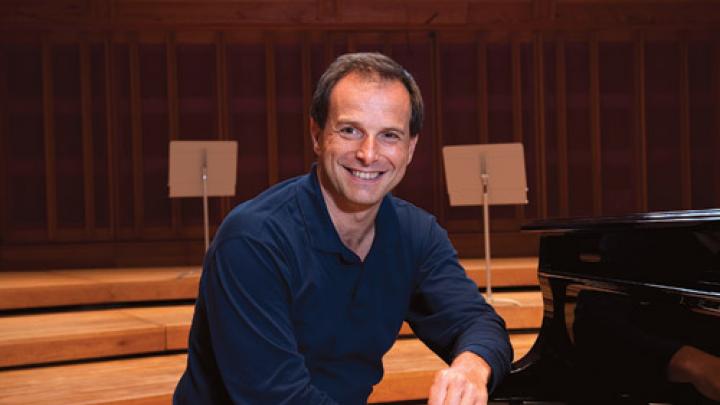“I don’t believe classical music is dying,” says Federico Cortese, the new conductor of the Harvard-Radcliffe Orchestra, “but I do believe there is a risk of becoming too aloof from the rest of the world.” Since 1999, as director of the Boston Youth Symphony Orchestras, he has relished that “refreshing, exciting, energetic, rewarding” work with young people, who nicknamed him “the Fed.” Cortese has also conducted all over the world. As assistant conductor of the Boston Symphony Orchestra under Seiji Ozawa from 1998 until 2002, he once, on short notice, directed Beethoven’s Ninth for more than 100,000 people on Boston Common. Of Neapolitan extraction, Cortese grew up in Rome in a cultured family: his father is a professor of medieval history and law, his mother an antiques expert. At age five, Cortese joined a boys’ choir, then learned recorder, flute, piano, and oboe, training at the Conservatorio di Santa Cecilia in Rome, where he also studied voice, composition, and conducting. From 17 to 23, he sang early music as a professional baritone and countertenor who could also sing tenor parts, a rarity. He later studied conducting at the Hochschule für Musik in Vienna, and also learned over the years from several great maestros: Herbert von Karajan, for example, granted him full access for two years to all Salzburg Festival rehearsals and performances. “Conducting,” Cortese says, “is something you learn through osmosis.” Important challenges, he feels, are connecting music with the larger intellectual environment and “getting the sounds you want from an orchestra,” he says, smiling. “You know, it’s not a computer.”
Federico Cortese

You might also like
Historic Humor
University Archives to preserve Harvard Lampoon materials
Academia’s Absence from Homelessness
“The lack of dedicated research funding in this area is a major, major problem.”
The Enterprise Research Campus, Part Two
Tishman Speyer signals readiness to pursue approval for second phase of commercial development.
Most popular
More to explore
Exploring Political Tribalism and American Politics
Mina Cikara explores how political tribalism feeds the American bipartisan divide.
Private Equity in Medicine and the Quality of Care
Hundreds of U.S. hospitals are owned by private equity firms—does monetizing medicine affect the quality of care?
Construction on Commercial Enterprise Research Campus in Allston
Construction on Harvard’s commercial enterprise research campus and new theater in Allston







